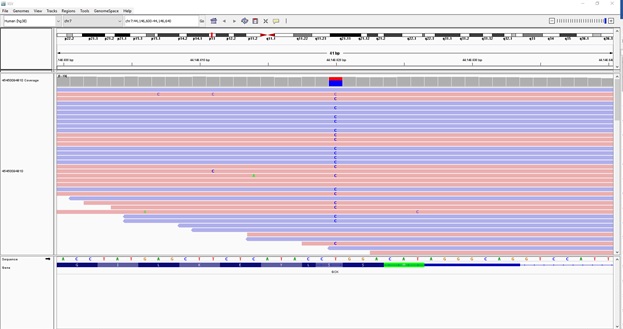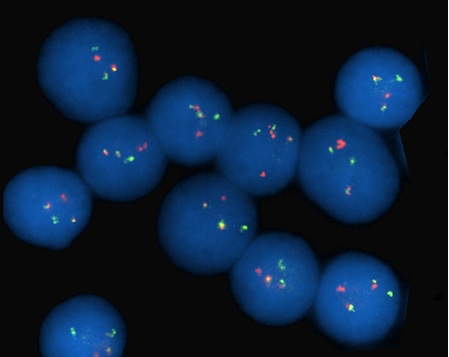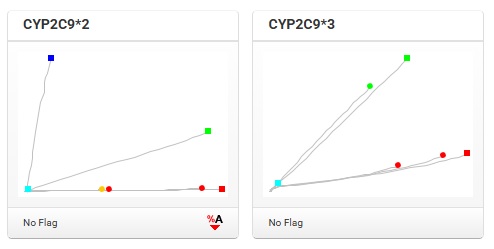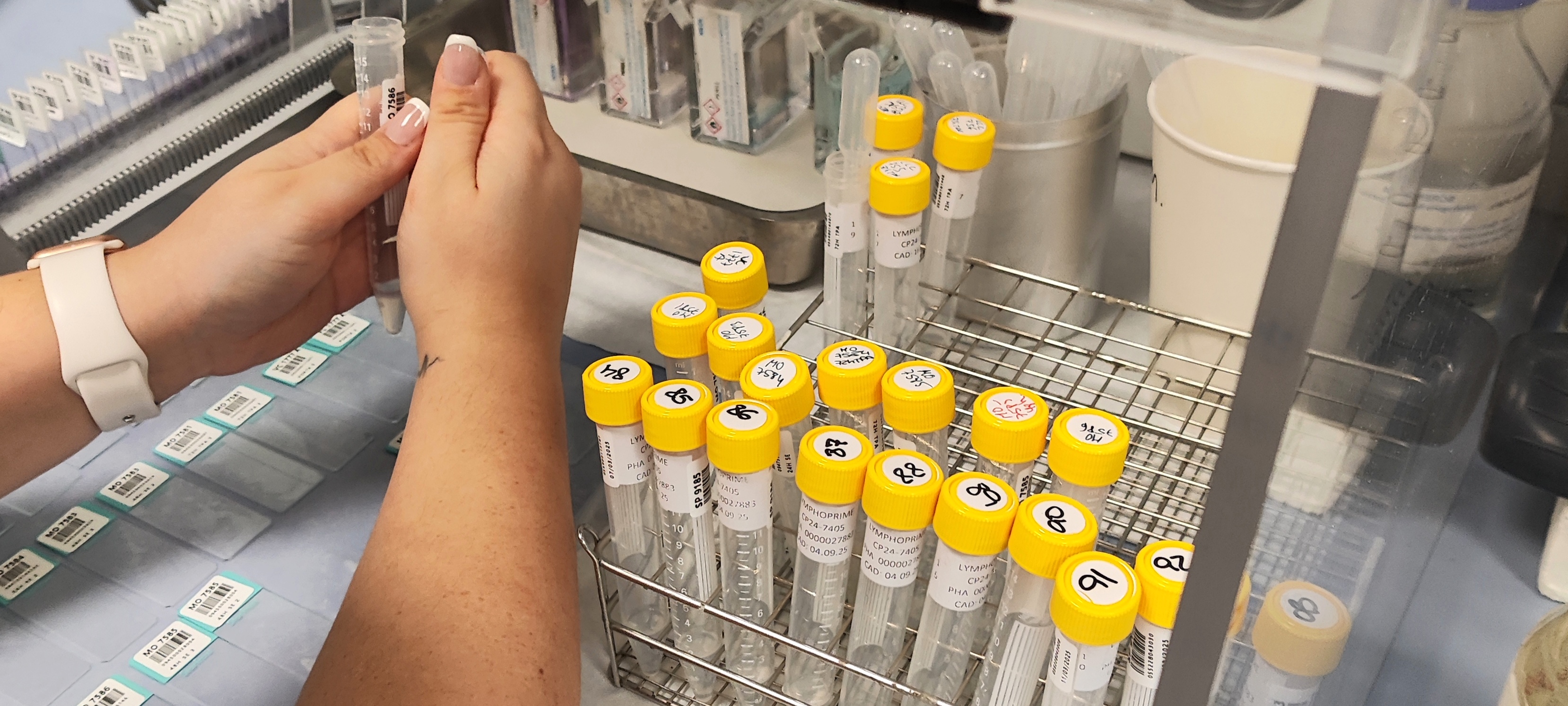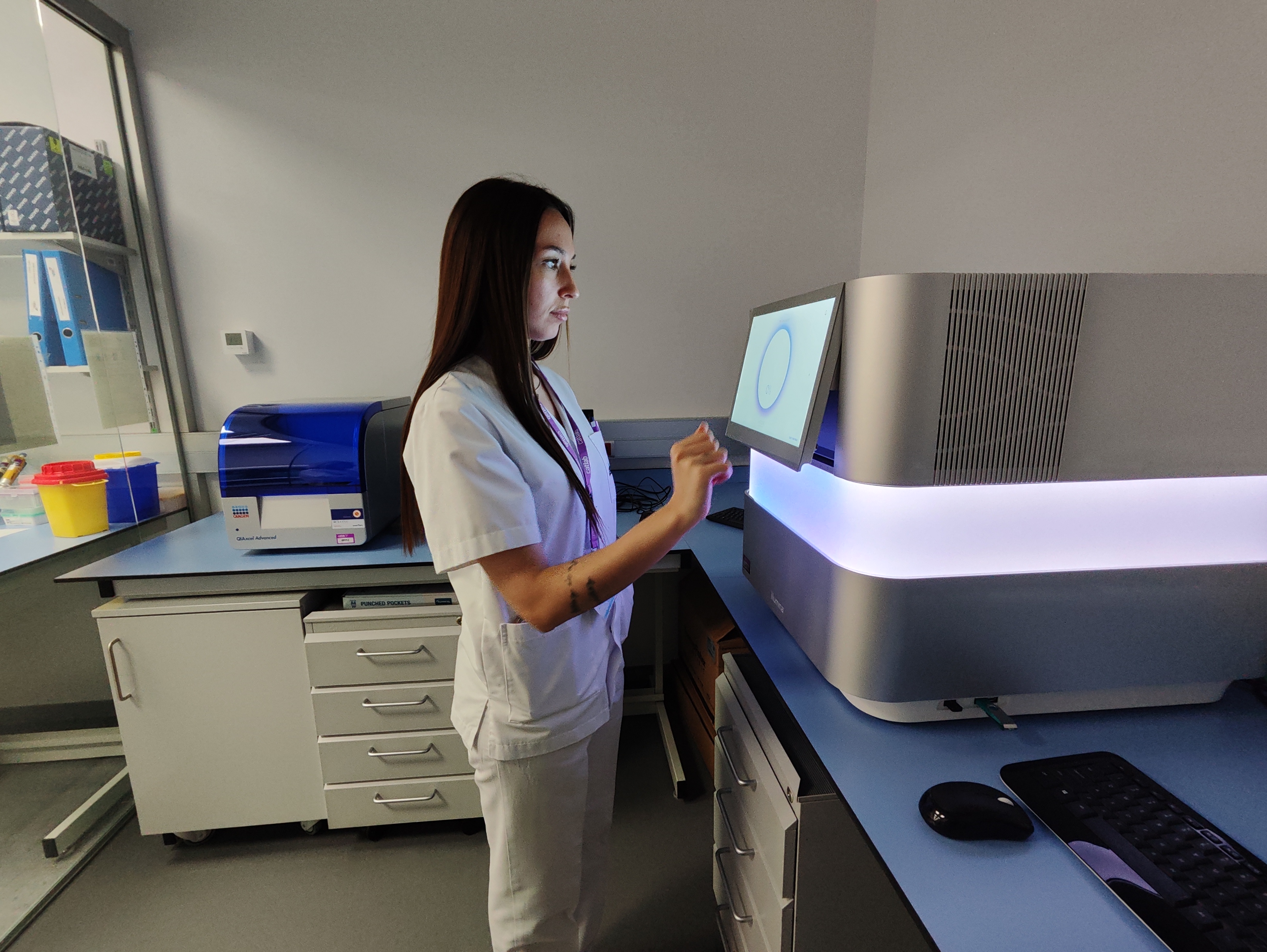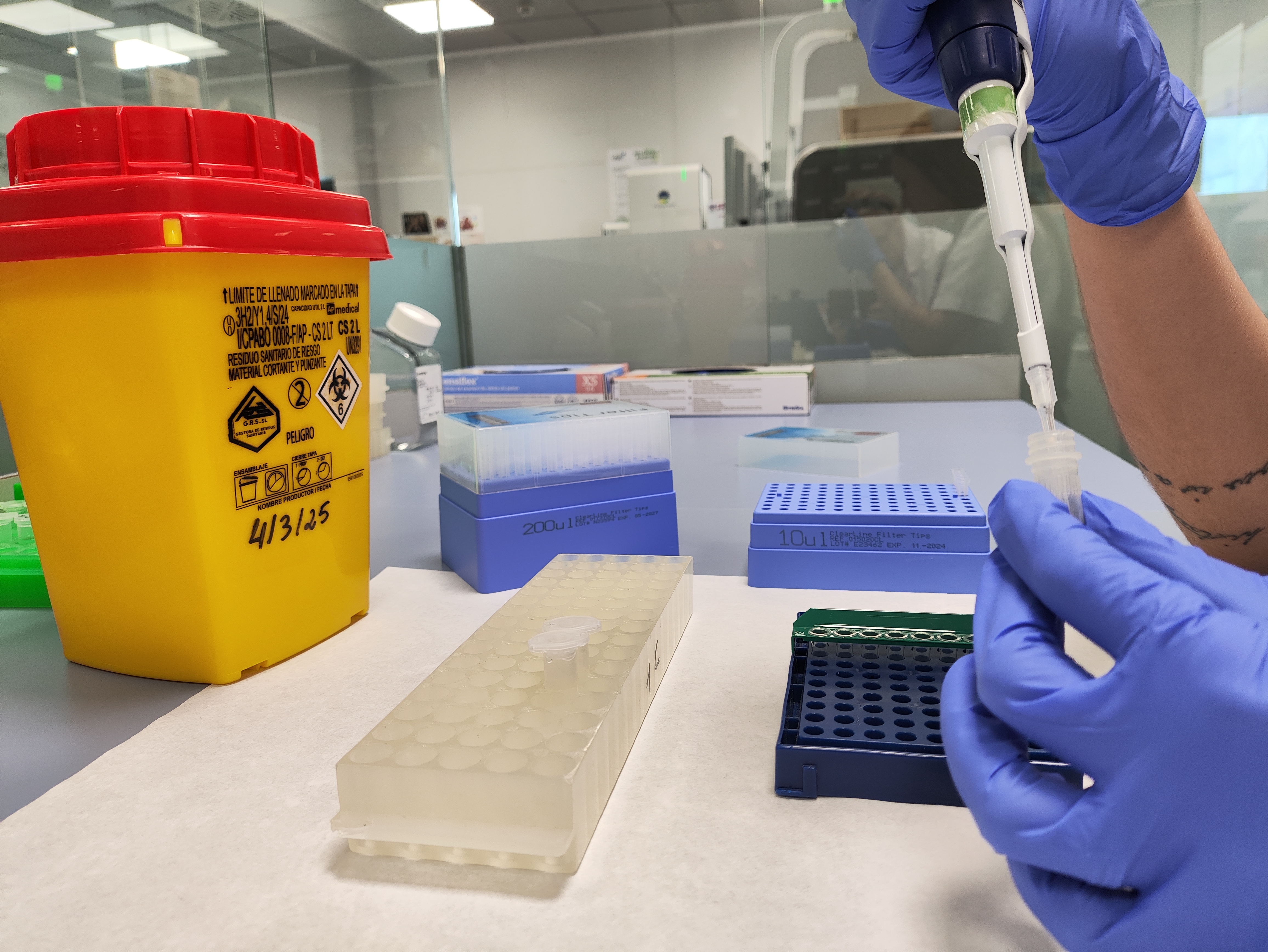In order to carry out this task, we have equipment for process automation and optimization, image analyzers, programmable hybridizers, and software for cytogenetic analysis, automated nucleic acid extractors, conventional thermal cyclers and state-of-the-art RT, reverse hybridization equipment, high-resolution electrophoresis equipment, capillary electrophoresis for Sanger sequencing and fragment analysis (SeqStudio), as well as next-generation sequencing (NGS) (NextSeq 2000).
Many of the patients who undergo a genetic study have to face often complex, potentially distressing results, associated with a diagnosis that is usually for life and that in many cases can also affect other members of their family.
This is why the practice of genetic counseling is essential, supporting medical professionals to transmit, both to the patient and their family, the essential information about the disorder they suffer from and thus giving them the necessary tools to make decisions independently,
see link.
In this context of advice, the informed consent tool, available to professionals and patients on this website, is essential,
see this information.
The area of knowledge of genetics is essentially transversal and, therefore, serves any medical specialty. Today, the main areas of expertise, in which genetic studies have the greatest impact, are neurogenetics, especially neuropediatrics, the study of minority diseases, oncohematology, the germinal study of cancer, the prenatal diagnosis of congenital anomalies, the genetic study of infertility, the study of genetic risk factors and pharmacogenetics.


